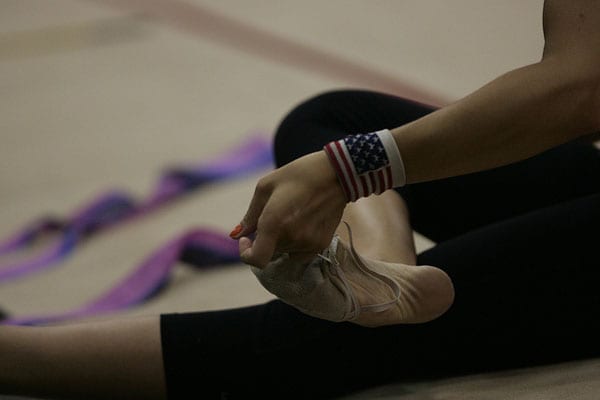
November 5, 2018; Washington Post
In an open letter to gymnasts on Monday, US Olympic Committee chief executive Sarah Hirshland announced her organization’s intent to decertify USA Gymnastics (USAG). This follows a number of governance and leadership missteps following the Larry Nassar scandal that have made the organization appear not only paralyzed but unrelentingly resistant to commit to decisive change. In particular, despite completely replacing the board, the organization has chosen and lost three leaders in the past year, one of whom has admitted to having Nassar’s files removed from the Karolyi Ranch training center. The files have since disappeared.
Nassar, who was over many years the team physician for USAG, has been accused of sexual assault by more than 265 women and girls. Among them are Olympic gymnasts, including Simone Biles, Aly Raisman, McKayla Maroney, Gabby Douglas, and Jordyn Wieber, who have accused Nassar of molesting them at the former national team training center in Texas and at international competitions, including the Olympics. Some of these high-profile athletes have made it their business to help create a safe environment for others now coming up in the rigorous sport, often tweeting or testifying by other means about the lack of progress they see at the organization.
The decertifying measure is considered a “nuclear option,” and has been used very rarely.
“While each of you has overcome adversity in different ways, some facing unimaginably terrible situations,” Hirshland wrote, “everyone now faces the difficult realty of belonging to a national organization that continues to struggle to change its culture, to rebuild its leadership and to effectively serve its membership.”
“You deserve better,” she continued, “so today I’m writing to let you know that the United States Olympic Committee has taken the first steps to revoke USA Gymnastics’ recognition as the National Governing Body for gymnastics in the United States and offered USA Gymnastics the option of surrendering its recognition voluntarily.”
Sign up for our free newsletters
Subscribe to NPQ's newsletters to have our top stories delivered directly to your inbox.
By signing up, you agree to our privacy policy and terms of use, and to receive messages from NPQ and our partners.
John Manly, attorney for more than 100 Nassar victims, including Raisman, called the USOC’s move “long overdue” saying that the timing was tougher for being so delayed.
The one concern that we have is, if this had been done long ago, when it should have been done, it wouldn’t put the currently competing athletes in a difficult spot. The Olympics are less than a year and a half away, and our clients are concerned about it. But getting rid of the USAG and its current leadership team means that children will be safer.
Washington Post sports columnist Sally Jenkins wholeheartedly agrees that gymnasts deserved more from USAG, and that the action taken comes very late considering the enormity of the lapse of care. But she also thinks the same can be said for USOG, now stepping in as savior.
When new USOC chief executive Sarah Hirshland announced the “decertifying” of USA Gymnastics on Monday, it was a tacit admission that her predecessors lied and dissembled when they said they had no power to hold anyone accountable for failing to protect athletes from sexual crimes. It’s no great act of conscience at this point to finally kick out the crested blazers and entrenched interests who profited from the sweat and stress fractures of young women, while ignoring their cries of abuse and covering up for pedophile team doctor Larry Nassar. It should’ve been the very first thing done, not the last…
Forget “decertification.” Not until we have a thorough and transparent examination of the entire USOC can it be trusted to rebuild anything in a trustworthy way. We’ll know the USOC is serious about cleaning up the scourge of sexual abuse when it voluntarily shares its internal communications about the Nassar matter and other abuse cases with the public.
Here is an observation untethered to this particular situation, which we cannot know firsthand: When the board changes yet the dynamics remain stuck, other influences at work are likely keeping the organization where it is. Larger problems in the broader field can certainly lead to calcified dysfunction, but so can the informal but powerful networks operating behind the scenes. Famed governance expert David Renz calls these “dominant coalitions” and discusses them in summary right here in The Jossey-Bass Handbook of Nonprofit Leadership and Management.—Ruth McCambridge












